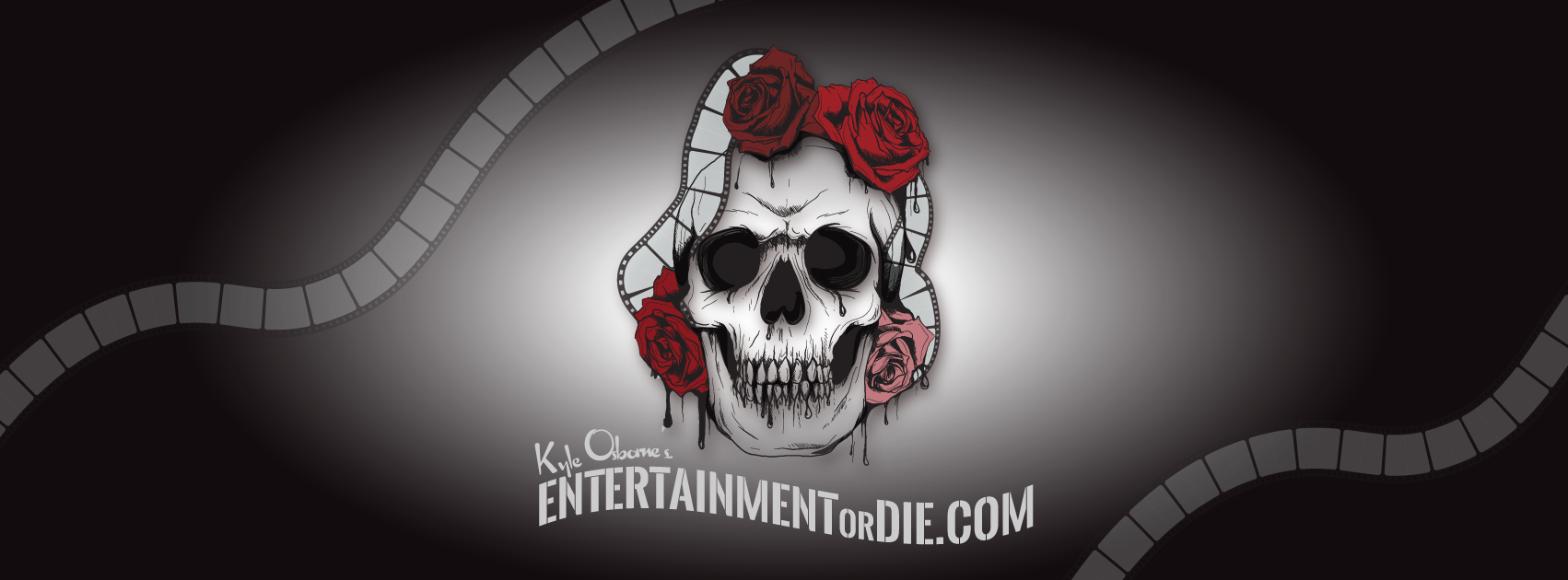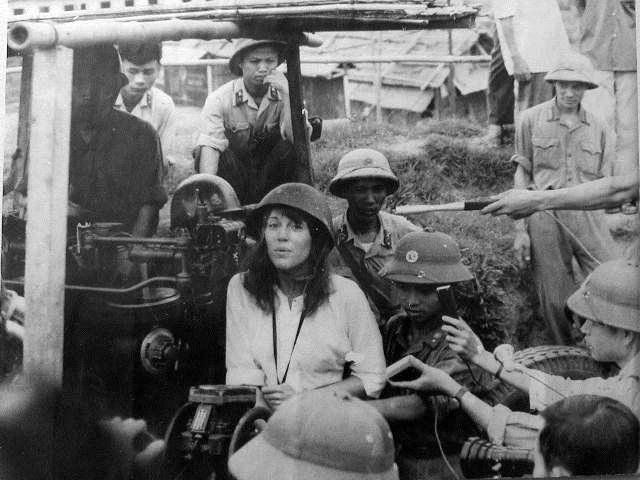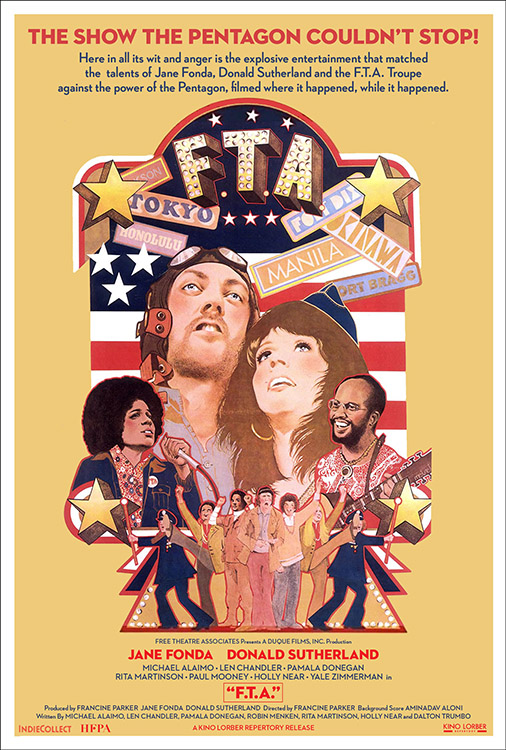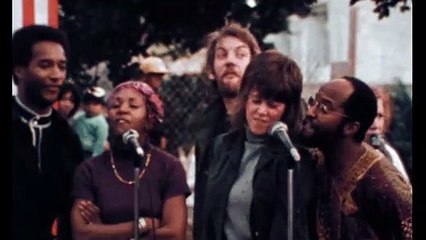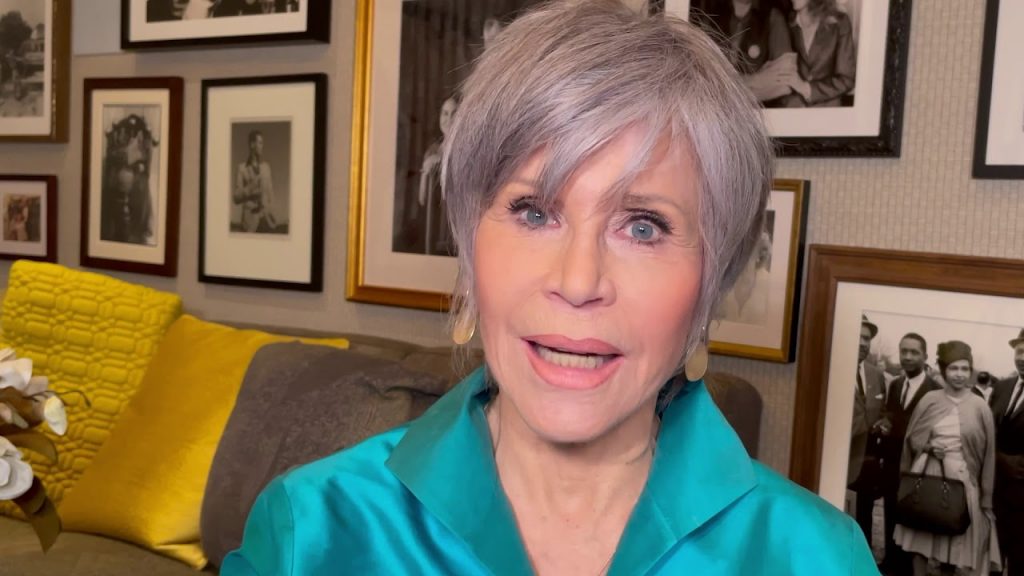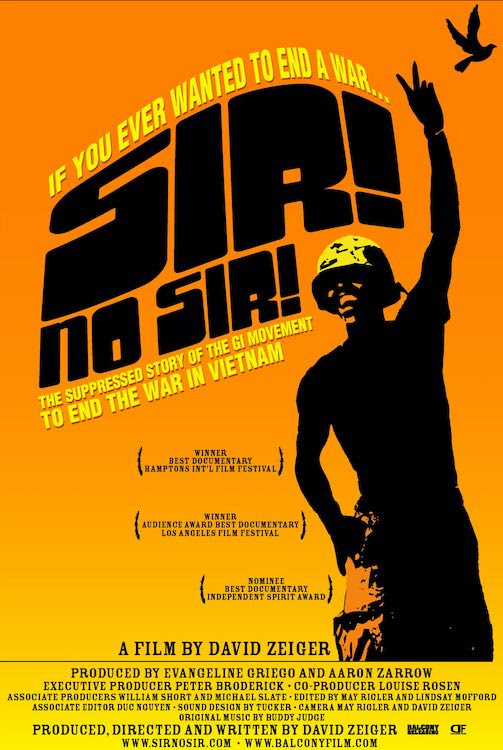(note from Kyle: updated DVD release info is at the bottom of this review)
This film played for about one week in 1972 before being pulled from theaters. Now it’s back.
Today, Academy Award winner Jane Fonda presents as a benign 83 year old lady, beloved in certain circles and recently feted at the Golden Globes. But 50 years ago she was one of the most visible anti-war protesters of the Vietnam era. Surely the most hated, as well.
Widely seen as a traitor at the time for traveling to Hanoi and for famously being photographed atop an enemy anti-aircraft gun. Even today, people like my own father will not see a film or TV show in which Fonda appears. There are many like him, though they are passing away with increasing frequency. I take no side, this was all before my time and we know that people disagree on the facts. I acknowledge the feelings of veterans, but we also now know that, ironically, Fonda was also a victim of propaganda, not just a perpetrator. Before I get to the actual review of the 1972 film that has been restored in 4k and re-released today, I’ll place Fonda’s explanation in her own words, as published on Wikipedia:
It happened on my last day in Hanoi. I was exhausted and an emotional wreck after the 2-week visit … The translator told me that the soldiers wanted to sing me a song. He translated as they sung. It was a song about the day ‘Uncle Ho’ declared their country’s independence in Hanoi’s Ba Dinh Square. I heard these words: ‘All men are created equal; they are given certain rights; among these are life, Liberty and Happiness.’ These are the words Ho pronounced at the historic ceremony. I began to cry and clap. ‘These young men should not be our enemy. They celebrate the same words Americans do.’ The soldiers asked me to sing for them in return … I memorized a song called ‘Day Ma Di’, written by anti-war South Vietnamese students. I knew I was slaughtering it, but everyone seemed delighted that I was making the attempt. I finished. Everyone was laughing and clapping, including me … Here is my best, honest recollection of what happened: someone (I don’t remember who) led me towards the gun, and I sat down, still laughing, still applauding. It all had nothing to do with where I was sitting. I hardly even thought about where I was sitting. The cameras flashed … It is possible that it was a set up, that the Vietnamese had it all planned. I will never know. But if they did I can’t blame them. The buck stops here. If I was used, I allowed it to happen … a two-minute lapse of sanity that will haunt me forever … But the photo exists, delivering its message regardless of what I was doing or feeling. I carry this heavy in my heart. I have apologized numerous times for any pain I may have caused servicemen and their families because of this photograph. It was never my intention to cause harm.
Now then: the newly restored and just re-released film F.T.A. is a 1972 documentary which followed Fonda, actor Donald Sutherland, Paul Mooney and other anti-war entertainers as they took a sketch/cabaret type show on the road to perform before active duty soldiers. The idea was to be sort of the mirror opposite of the popular Bob Hope USO shows for the troops. This film is meant to make the case that some of those who were most vehemently opposed to the war were actual GI’s.
To be blunt, the sketches haven’t aged well and probably will appeal mostly to those who were old enough to have been there or those who are students of history and want to step back in time for a glimpse.
What is interesting is seeing on-the-fly interviews that were conducted at the time with active soldiers or former troops which are sprinkled within the film between bits of stage footage.
The other element that is new to this restoration is an introduction which Fonda recorded especially for the re-release. In her intro she says that while most of us today think of the protesters as having been college students or hippies (and there’s plenty of footage to back her up on that, right?), but that in actuality there were untold numbers of military members who organized among themselves, printing underground newspapers and pamphlets. By 1971, there were 300 underground papers.
Fonda also says that racism was rampant and many of the anti-war troops were black or white urban poor. They were among the most vocal opposition. So, the introduction, she says, is to put what follows in context.
By the way, “F.T.A. Tour” stood for Free The Army, a play on the phrase F*ck The Army.
F.T.A. is playing virtually HERE. 1 hr 37 min, And comes to Blu-ray and DVD May 4, 2021, Bonus Features include David Zeiger’s documentary SIR! NO SIR! (2005, 83 minutes), a new introduction by Jane Fonda, a 2005 interview with Fonda, and, exclusive to the Blu-ray, a booklet with essays by historians David Cortight and Mark Shiel.
F.T.A. and SIR! NO SIR! are also available to buy and rent digitally on Kino Now, individually or as a double-feature set.
